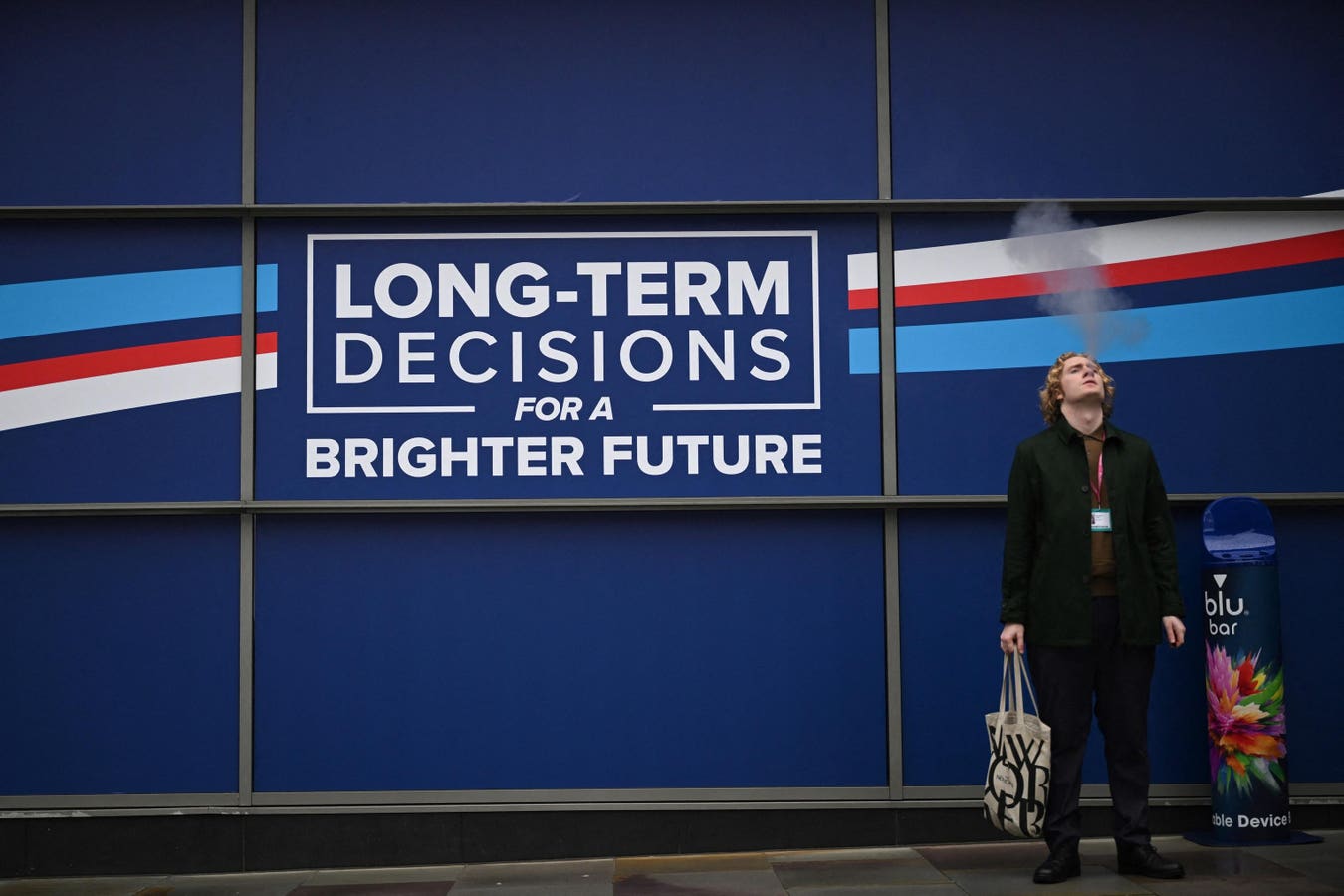A delegate smokes a cigarette outside the conference centre on the opening day of the annual … More
The World Health Organization this week released its tenth report on the global tobacco epidemic, a status update on its anti-smoking campaigns. The WHO concludes that more than 6 billion people, or around 75% of the world population, are now covered by some kind of tobacco control measure, including graphic warnings on cigarette packages, increases in taxation, advertising bans and programs that help people quit smoking.
According to the organization, less than 20% of the world population currently smokes, down from more than 32% in the year 2000. 80% of these people are located in middle or low income countries and are more likely males as smoking continues to be the biggest cause of preventable death globally. As tobacco use is falling and control measures have reached a critical mass of people, a total phase-out of commercial tobacco use has been on the table in some countries, while others are inching closer, attempting to reduce the number of smokers to 5% or less of the population. However, some of the most high-profile measures of this kind have already failed, raising the question whether a tobacco-free future is in the making, further away that it seems or even wholly unattainable.
This chart shows major tobacco bans or similar legislation and state of implementation worldwide (as … More
Bhutan, the Himalayan nation, was the world’s first officially smoke-free country when it outlawed the import and sale of tobacco in 2004. Bhutan has become famous for its different approach to governance, which has been admired in the West, for example calculating gross national happiness or mandating that 60% of the country remain forested. But even the remote nation that cited Buddhist teachings as a reason for its tobacco ban has not been immune to outside influence and axed the majority of its ban in 2020 amid the coronavirus pandemic to stop smugglers which were spreading the disease. Since then, the country’s government has decided not to reinstate and instead focus on education and cessasion programs, as the ban did not actually lower smoking rates and instead created an environment free of warnings around the tobacco which was still available illegally.
More recently, New Zealand attempted to raise a smoke-free generation from 2027 onwards by not allowing anyone born in 2009 or later to legally purchase cigarettes once they turned 18, alongside many other anti-tobacco measures. The country’s approach was that of a more gradual phase-out rather than a sudden ban but its merits won’t be tested as a change in government prompted the law enacted in 2022 to be scrapped despite reportedly having widespread public support. A new conservative coalition government decided to change course after coming to power in 2023, reportedly at the request of the populist New Zealand First party. Tobacco revenue was consecutively tied to new tax cuts. This highlights another area of concern with tobacco bans and phase-outs: the cost of prevention and tax revenue losses in the short term, even though these are expected to be offset by lower public healthcare costs. However, the United Kingdom is currently mulling a similar ban that is yet to be enacted but enjoys government and public support as of now.
Creating Smoke-free Nations?
The New Zealand government meanwhile said that it remained committed to creating a smoke-free nation nevertheless. Several countries, including Portugal, Canada and Australia, have set similar goals, typically aiming to reduce the number of smokers to 5% or less in the next five to 15 years. The EU, for example, has set this date to 2040. One popular rule to inch closer to this goal has been to further limit smoking in public outdoor areas like restaurant and bar patios, beaches, parks, natural areas or even inner city streets. The aforementioned countries, sometimes on a state level, have introduced bans like these, as have several other nations around the world.
Cities have also followed suit and a well-reported ban went into effect in Milan at the beginning of the year, outlawing smoking anywhere near other people, similar to the law in place in Costa Rica. France is also tightening these rules from July 1, but exempts outdoor hospitality areas, another major area of pushback in the ongoing tug-of-war between public health advocates driven by well-founded concerns, proponents of free lifestyle choices and governments’ short-term revenue considerations.
Charted by Statista




